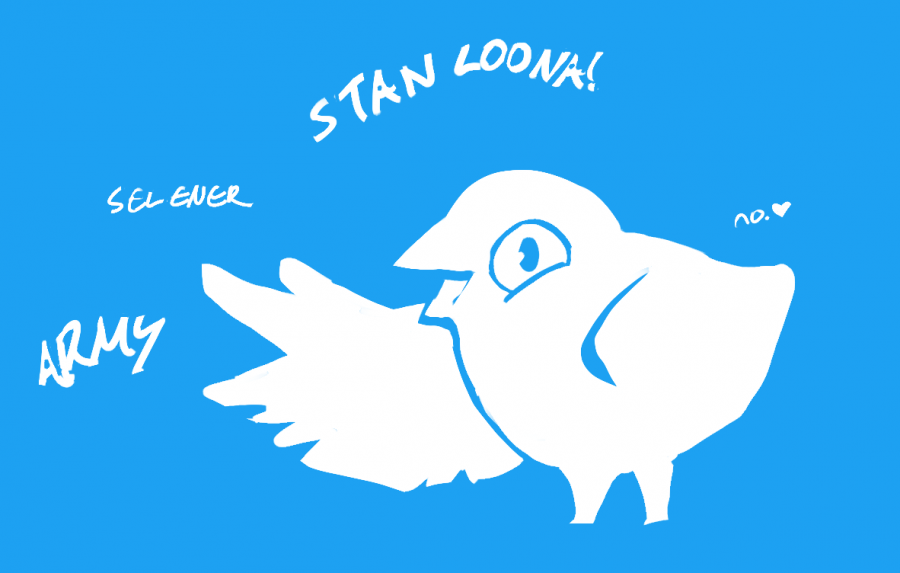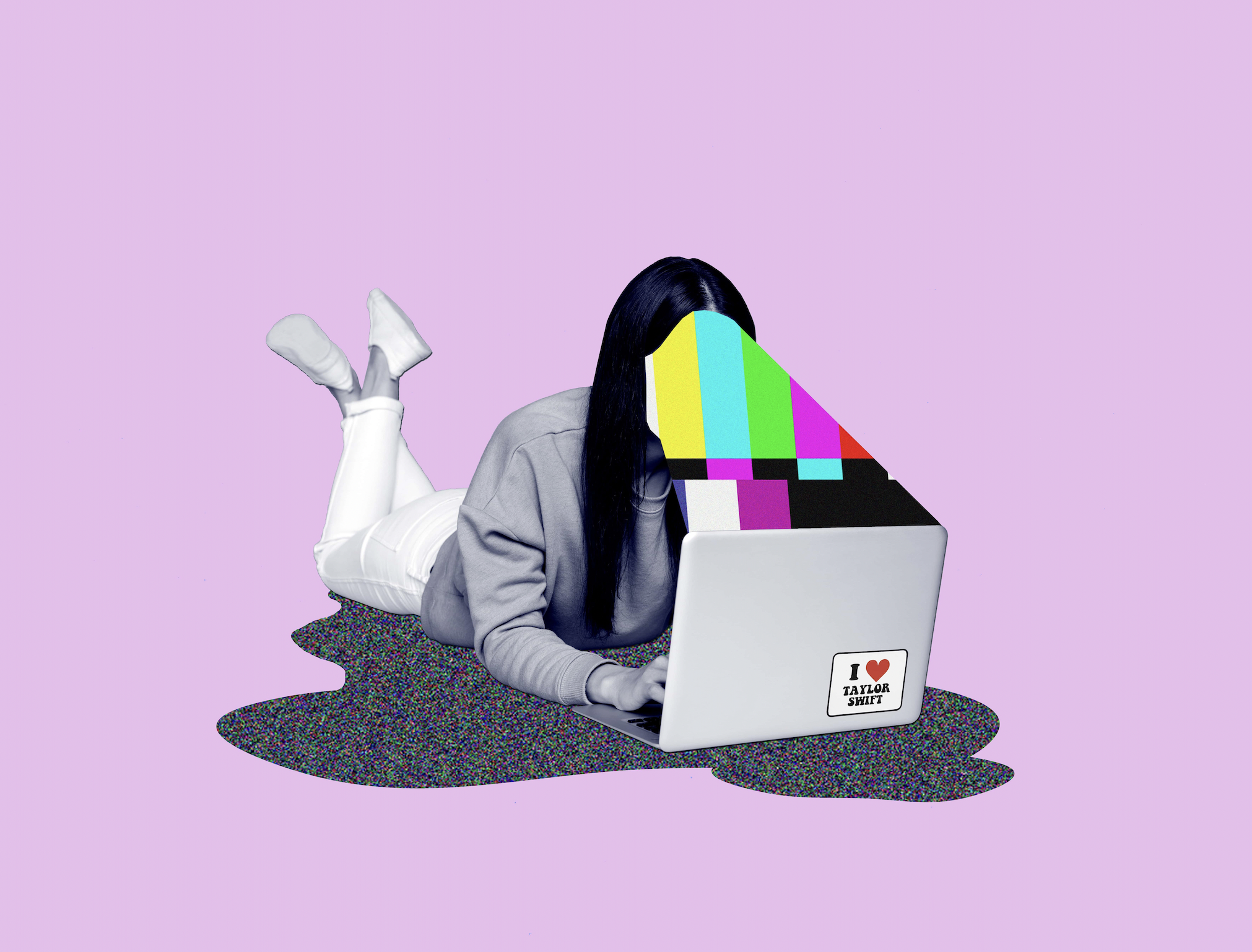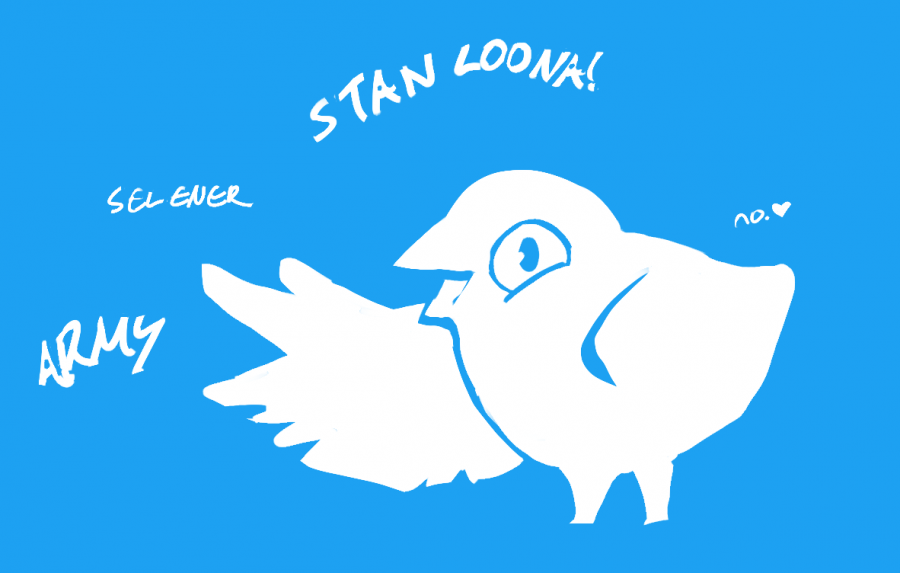From the moment I’ve first had access to the internet, I’ve continuously been in different fan communities. My pre-teen and teenage years were spent “fangirling” over book/movie series, singers, actors, fictional characters, and being an active part of the communities built for them on social media. Aside from engaging with the content made in these communities, I have always been one of the creators of the posts, the edits, the videos, the fan fiction and so much more. I no longer am an active creator, I find it more than enough to just keep up to date with my favorite artists and enjoy the content on my own. It sounds pretty exhausting to live that way now. I imagine that if I told this to myself from 5-6 years ago, she wouldn’t believe it. She probably couldn’t imagine her life without actively “stanning” someone.
I still do think it’s fun when you don’t take part in the toxic side of it and engage with it moderately, but I was too caught up in the whole thing that it had reached a point where it was taking a significant part of my time and my energy, and all it did was to stress me out. While these stan communities give a great space to meet other people with the same interests, make friends and talk about your favorite artists, show your support and just have fun with the people who like the same things you do, it comes with a downside. It can get pretty toxic.
What does it mean to be a stan, and what is stan culture? The term stan culture is described as “the behavior or beliefs of an extreme fandom whose members fervently and blindly support their chosen celebrity or team“. It takes place mostly on “Stan Twitter”, which is the side of Twitter (formerly Twitter, now X, but I will never call it that) where people discuss their fandoms, who/what they stan and generally pop culture as a whole.
The origin of the term stan is linked to the song “Stan” that came out in 2000 by Eminem, which was about an obsessed fan. Stan culture is built on parasocial relationships, where you imagine your favorite artist as your friend, where they become more than just a celebrity you support online. Parasocial relationships aren’t inherently bad or dangerous, even though some people may find it strange. Personally, the relationship I’ve had with my favorite band when I was 16-17 has benefited me in ways I wouldn’t have thought of. Their music, their lyrics, the topics they would talk about and the things they encouraged, it all helped me feel better about myself and change my perspective on the world when I was at my worst, mentally. I even have a song of one of the members tattooed, and even though I may not be an active “stan” anymore, it will always have a piece of my heart, and I will always look back to it fondly. I know many, many other people who felt the same way and said the same things about them on Stan Twitter, which brought us together. I made so many friends through Stan Twitter, I even met a couple of them in real life and went to a concert together. It was an amazing experience I’ll never forget, and I’m thankful for all the amazing people it brought to me. I’ve lost contact with many of them as we all drifted apart growing up, but I’m still friends with the ones I know I have real connections with.
When I was only 12, I had an instagram account where I posted edits of my favorite book series such as Harry Potter, Percy Jackson, The shadow hunters, The Hunger Games, and so much more. I met people all over the world with the same interests, and spent my days “fangirling” with them. When I was 14, I moved to Twitter as I started shifting more towards music and bands, and that was when it actually started.

Instagram back then was much more peaceful compared to Twitter, you could just post your silly little edits and chill. However, people always had a thing to say about what you post on Twitter. You could say something as simple as “I really like apple juice” and then a random person would come along and say “So you hate orange juice? You think orange juice sucks? Well then you suck because orange juice is my comfort food.” and you’d be like… What? Well, it wasn’t too different for the Stan side of Twitter. As long as you stayed in your lane in your fandom you were good, but the second you voice out an opinion that people might disagree with or criticize some other artist, you get “cancelled” and get called horrible names. “Stan wars” were an actual thing, where fans of different fandoms became enemies and constantly got in endless fights. People would give each other death threats if someone said a single bad thing about their favorite artist, and argue over meaningless things every day.
Looking back, I can see that the reason I was so deep in these communities back in the day was because I was trying to find an escape from my real life. I grew up as a lonely kid, and even though I had friends, I always felt as if none of them really understood me. So I turned to the ones I had online, and tried to ignore the struggles of reality. As I grew up and started seeing the world differently, realized reality doesn’t have to be so bad once I made amazing friends and started figuring out who I am, I slowly drifted apart from the whole thing.
It’s so easy to lose yourself and forget about the life behind the screen in the digital age, especially for people seeking forms of escapism. While I’ve had a lot of fun and made many friends through these online communities and stan culture as a whole, learning how to enjoy it all without letting it consume my time and my energy has made me realize: it’s all about the balance.




Eminem ruined the world
I very much relate to turning to online communities to find friends when I was younger. In my experience, it is much less scary to be open and honest with a friend you’ve only met online, something about the anonymity. I’ve made some genuinely great friends online.
But on the other hand, that anonymity is also what causes online spaces to be filled with cretins behaving abhorrently towards anyone they disagree with.
I think the platform in which you interact with fans is also so important in changing the types of interactions that you have. Twitter is, in my opinion, one of the worst websites since it is known to recommend and make inflammatory posts popular. And in general there is a lack of ability to curate your feed which makes it not the best which is especially worsened by the anonymity.